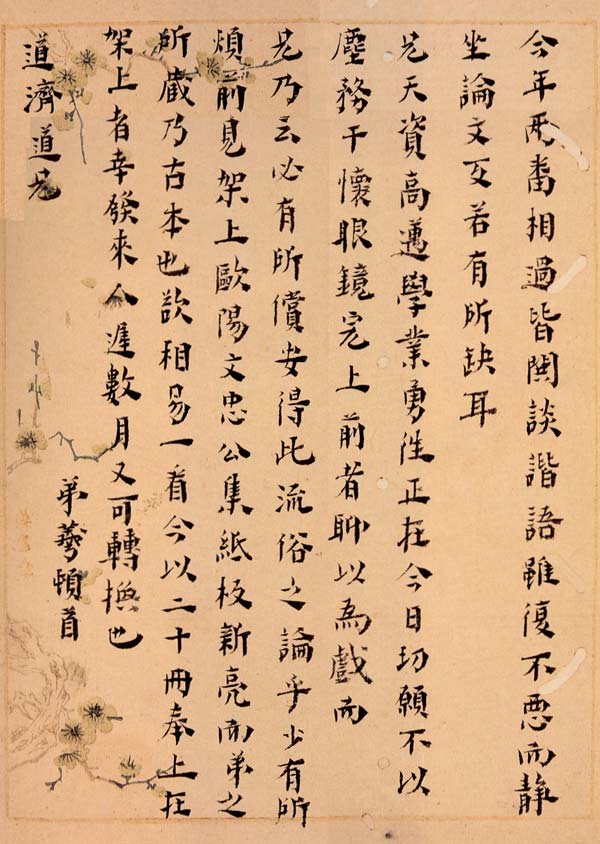Huang Zongxi (1610-1695) was a historian and thinker in the late Ming and early Qing dynasties. A native of Yuyao, Zhejiang. His courtesy name was Taichong and his nickname was Nanlei. Scholars respected him as Mr. Lizhou. His father died due to persecution by the eunuchs in Donglin Party Prison. After Emperor Chongzhen ascended the throne, Zongxi went to Beijing to plead his grievances against his father, and was praised as the "loyal minister and orphan". In the second year of Shunzhi of the Qing Dynasty (1645), the Qing army went south and the Hongguang regime collapsed. King Zhu Yihai of Lu supervised the country in Shaoxing. He recruited villagers to raise troops in Yuyao to resist the Qing Dynasty, which was called "Shizhong Camp" at that time. The King of Lu's regime granted him the post of supervisory censor and part-time official. After the defeat, he returned to his hometown, taught lessons and wrote, and ended up writing. He did not serve in the Qing court until his death. Huang Zongxi has a wide range of academic fields and great achievements, especially in history. He experienced the changes of Ming and Qing Dynasties and believed that "a country can be destroyed, but history cannot be destroyed." When discussing history, he focused on historical law and emphasized the credibility of facts. "The Case of Confucianism in the Ming Dynasty" is the first systematic monograph on the history of academic thought in China. In philosophy, it is believed that Qi is the foundation, and without Qi, there is no reason. Reason is the principle of Qi. However, it is also believed that "the heart is Qi" and "the heart that fills the heaven and the earth". Politically, he profoundly criticized the feudal autocratic monarchy and proposed that a king would be a great harm to the world. It was better to have no king. He advocated the abolition of the "law of the family" for the monarch and the establishment of "the law of the world" for all people. He also proposed the idea of using schools as political institutions. He was proficient in the study of calendars, geography, mathematics, and editions and catalogs, and applied what he gained to the practice of historical management, analyzing the authenticity of historical events, and correcting the gains and losses of historical records. He had many outstanding insights that affected the entire Qing Dynasty. His writings throughout his life were roughly classified into miscellaneous works on history, classics, geography, laws and calendars, mathematics, and poetry. There were more than fifty kinds and nearly a thousand volumes. His main works include: "The Case of Confucianism in the Ming Dynasty", "The Case of the Song and Yuan Dynasties" ("The Case of the History of the Ming Dynasty" (not seen so far), "The Sea of Ming Wen", "The Records of Visits to the Ming Yi", "The Records of Traveling to the Dynasty", "The Modern Water Classic", "Datong Calendar", "Siming Mountain Chronicles", etc.

Notes to Daoji Collection of Taiwan Ho Chuangshi Calligraphy Art Museum








